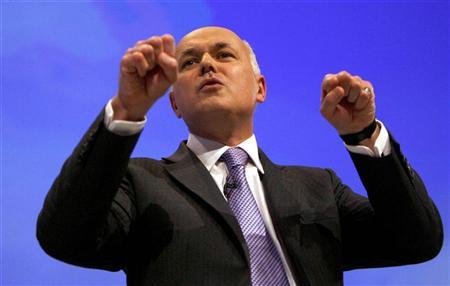Rows are consuming the Conservative Party over cuts to the welfare budget, following the party’s surprise win in the general election. In the run-up to polling day, Conservatives had been promising to slash £12 billion from the welfare budget, banking on the proposal being watered down during coalition arrangement negotiations.
Sources inside the party have told the Observer that Iain Duncan Smith, the welfare secretary, is having to fight a rearguard action to prevent his budget being “salami sliced” to fund some of the unfunded giveaways that the party promised to lure voters.
“You have two sides of the ledger – the cuts and the giveaways – and people didn’t think they would have to go through with them,” one source said. “Iain Duncan Smith was surprised when the cuts were first announced in January, and that tells you where the push-back in government on this is now.”
Another source close to Duncan Smith said that the minister was confident the target could be reached through “structural reform”.
“He might have wanted agreement on the detail earlier, but, as the person whose job it is to see this through, he is committed and believes you can do it through behavioural change,” the source said.
Duncan Smith has been committed to the task of welfare reform for many years. In 2004 he established the Centre for Social Justice to understand the root causes of poverty and develop policy solutions to those causes.
In 2010 he told the Department for Work and Pensions “I want this Department to be at the forefront of strategy to improve the quality of life for the worst off.” Reforms to make work pay and introducing sanctions were enacted, and by February of this year he was able to claim that £50 billion had been saved cumulatively over the course of the parliament.
“What I have been doing now for a number of years is reforming welfare as a means to making more people better off,” he said in April, speaking on the election campaign trail.
“The reforms have not just saved taxpayers money, including those on low and middle incomes, we have actually been able to give them tax cuts by raising the threshold on the personal allowance on income tax.
“We have been able to afford that because more people have got back into work as a result of our reforms.”
As it attempts to balance the books while keeping its pledges, the government has also announced a five year freeze to ministerial pay. Prime Minister David Cameron said in a statement: “There are still difficult decisions to take as we complete the task of clearing the deficit. As we take those decisions, my approach is simple: we will do it in a one-nation way. We are all in this together: so I am freezing ministerial pay for the next five years.”
Ministers will, however, receive the ten per cent increase in MPs pay as recommended by IPSA, along with their backbench colleagues.

COMMENTS
Please let us know if you're having issues with commenting.